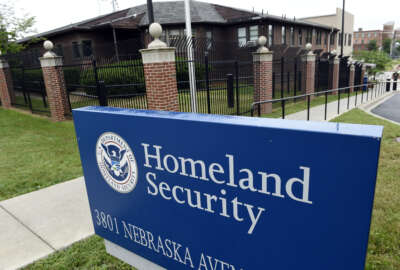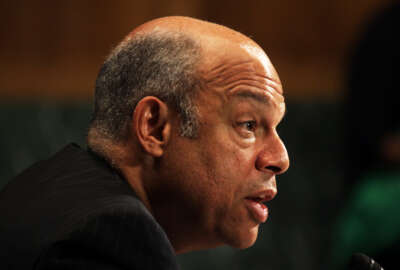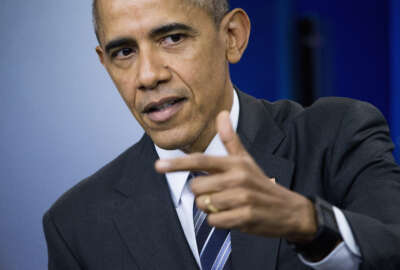
DHS chief: Agency ‘not where we should be’ for hiring cyber talent
DHS Secretary Jeh Johnson defended his agency's $40.6 billion fiscal 2017 budget, telling a congressional committee that cybersecurity funding would help hiring...
Homeland Security Secretary Jeh Johnson defended his department’s fiscal 2017 budget on Capitol Hill, telling the Senate Homeland Security Committee that increasing the agency’s cyber workforce and capabilities is important to strengthening national security.
Johnson testified before the committee on March 8. He explained to lawmakers that the agency needs to build up its workforce in order to meet growing threats in cyberspace and compete with the private sector, which is where many qualified candidates end up working.
“We are competing in a tough marketplace against the private sector, that is in a position to offer a lot more money,” Johnson said. “[Homeland Security Undersecretary for the National Protection and Programs Directorate] Susan Spaulding and her people are making very aggressive efforts to A) implement the 2014 legislation you passed and B) in the interim, do a lot of things in terms of recruitment; expediting the hiring process and so forth. We need more cyber talent without a doubt in DHS, in the federal government, and we are not where we should be right now, that is without a doubt.”
DHS requested $40.6 billion in appropriated funding, with an increase in total spending to $66.8 billion.
According to Johnson’s submitted testimony, the fiscal 2017 DHS budget proposes:
- An increase in total workforce from 226,157 to 229,626
- A 1.6 percent pay raise
- $274.8 million for the Continuous Diagnostic Mitigation program, which provides hardware, software and services designed to support activities that strengthen the operational security of federal “dot-gov” networks
- $47.1 million to sustain the EINSTEIN program
- Expanding DHS’ 10 cyber response teams to 48
A ‘sense of patriotism’
While committee members had questions and concerns about how the budget would address certain issues related to national security — including resources for northern border security, drug smuggling and aviation security — some lawmakers pledged their support to the secretary for building up the agency’s cyber workforce.
“I have stated repeatedly, I’m very impressed with … the quality of the federal workforce; these people are patriots, they take their mission seriously about keeping the nation safe,” said Committee Chairman Ron Johnson (R-Wis.). “But I also understand the constraints. I know what the private sector will pay for talent and you’re constrained there. So we’re going to have to put our heads together and figure out what do we need to do so that your department is staffed with the best and the brightest. There are plenty of patriots in America that will do it and will do it at a really great financial sacrifice. Let’s try and break down barriers we create bureaucratically, to resource you.”
Sen. Tom Carper (D-Del.) suggested the agency stress the importance of serving one’s country in its message to potential hires.
Carper pointed out that Phyllis Schneck, the deputy undersecretary of cybersecurity in the National Protection and Programs Directorate at DHS, told him she felt an obligation and desire to give back to her country, which is why she left the private sector to work for the federal government.
“It’s all well and good cyber warriors work for other companies and businesses and so forth, but in this case, there’s something to be said for appealing to people’s sense of patriotism,” Carper said. “I think that’s what one of the things that draws her. That’s a calling card if you will, that we can use and I’m sure that we do.”
Jeh Johnson said he agreed with the senator, suggesting the agency “ought to appeal to people’s sense of patriotism.”
In his testimony, Jeh Johnson said improving employee morale is among is human capital goals for DHS.
“We’ve been on an aggressive campaign to improve morale over the last 2 years,” he said. “It takes time to turn a 22-component workforce of 240,000 people in a different direction. Though the overall results last year were still disappointing, we see signs of improvement. This year we will see an overall improvement in employee satisfaction across DHS.”
Jeh Johnson also said DHS will be working to develop a Cybersecurity Assurance Program “to test and certify networked devices within the ‘Internet of Things.'”
In his testimony, Jeh Johnson said the agency was asking Congress to officially authorize the Joint Task Forces that were stood up to help with southern border security. The Task Forces creation is part of the Unity of Effort initiative.
Jeh Johnson added that DHS is looking to reform its human resources process.
“We are making our hiring process faster and more efficient,” he said .”We are using all the tools we have to recruit, retain and reward personnel.”
CBP incentive, hazardous duty pay
Sen. John McCain (R-Ariz.) expressed concern about filling vacancies and offering incentives to customs and border protection officers in high-traffic areas, adding that he was introducing legislation to address this potential pay increase.
“I am of the view that we need to have some kind of incentive pay or hazardous duty pay at ports of entry that experience high-traffic flows,” McCain said. “It’s a very tough environment. … I can understand how tough a duty it is. I think just as we in the military, we provide incentive pay for hardship positions, I hope that you would look at that and I’ll be introducing legislation on it, because it’s just not sufficient as you know. We’re well over 100 customs agents short, it’s either there’s something with the level of staffing required or something wrong with the level of personnel.”
Jeh Johnson said he would be happy to look at the proposed legislation and similar to the cyber workforce, “We’re not where we need to be, no argument from me there.”
“CBP needs to and is making aggressive efforts to hire, to bring on people faster, get them through the polygraph exams,” Jeh Johnson said. “I fully support the hiring of veterans and making it easier to hire veterans.”
Copyright © 2024 Federal News Network. All rights reserved. This website is not intended for users located within the European Economic Area.





